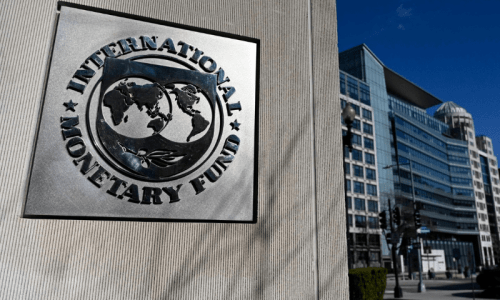Washington: On April 29, the International Monetary Fund’s (IMF) Executive Board will convene to conclude its final assessment of Pakistan’s $3 billion Stand-By Arrangement (SBA).
Dawn was informed by a diplomatic source that the review meeting is scheduled for 10:00 am on April 29 based on the IMF’s event calendar.
On its website earlier this week, the Fund listed Nigeria as the nation whose program will be examined on April 29 in the schedule of meetings for the Executive Board. Pakistan is noticeably missing from the list of countries reviewing IMF programs with Kiribati and Montenegro, which will be reviewed at the next meeting on May 1.
Prior announcements from the IMF and Pakistani authorities suggested that the board will not only meet on April 29, but also authorize the disbursement of the last $1.1 billion installment under the SBA, which was signed in June 2023.
Pakistan is speculating that the country may not have been on the board’s agenda because this meeting is not included on the IMF’s public calendar. There have even been rumors that Pakistan may have to renegotiate the final tranche’s release.
“These are unfounded rumors,” a former World Bank employee declared. This is not how the IMF does things. Any decision to postpone a program would be made in public, not behind closed doors.
He clarified that although scheduling issues could cause a meeting to be postponed, this usually has little effect on a program following a Staff-Level Agreement (SLA).
An SLA for the second and final review was reached in March between IMF personnel and Pakistani authorities. It was then sent to the board for final approval. Pakistan would receive SDR 828 million, or almost $1.1 billion, upon clearance.
Finance Minister Muhammad Aurangzeb, meantime, said that Pakistan is on track to receive a new loan from the IMF in an interview with the US weekly magazine The National. He also mentioned that the money lender has been “very receptive in terms of agreeing to consider a larger, longer programme.”
Aurangzeb stated that Pakistan was benefiting from a shift in macroeconomic indices in the interview that was published on Monday. He seemed upbeat that Pakistan’s currency has at last stabilized and that the country’s high rates of inflation are expected to decline to single digits by the end of the following year, according to The National.
Pakistan was requesting a $6 billion IMF loan, according to The National, but Aurangzeb stated that amount was more of a “guesstimate.” The specifics of the loan will be decided upon when an IMF delegation comes to Islamabad the following month.
The finance minister discussed China and the China-Pakistan Economic Corridor (CPEC) in the interview, saying that Pakistan had “missed a trick” by delaying project revenue generation, particularly by increasing exports to special economic zones.
He declared, “Over the past few years, we have been slow.” “In order to commence the revenue-generating portion of the CPEC, we will proceed with phase two,” he declared.
Additionally, he emphasized the significance of remittances to Pakistan’s economy. According to him, foreign payments are increasing and are predicted to reach almost $29 billion in this fiscal year.
Getting together with investors from the UAE
According to a Monday article from the state-run news agency APP, Mr. Aurangzeb met with prominent UAE investors in Dubai, such as Mohammed Hilal Bin Tarraf Al Mansoori, the chief of Nad Al Shiba Holding, and Abdulla Bin Lahej, the chairman of Ayana Holding.
According to a press release from the finance ministry, the minister looked into ways to increase investment activity between the UAE and Pakistan by promoting current business alliances and investigating additional diversification in information technology, renewable energy, transportation and logistics, infrastructure, and real estate development.
He emphasized Pakistan’s competitive advantages, which make it a top choice for investors looking for long-term growth and good profits.
In order to ensure a seamless experience, the minister also emphasized the role of the Special Investment Facilitation Council, which offers comprehensive support services such as market research, regulatory guidance, investment facilitation, and post-investment support.








